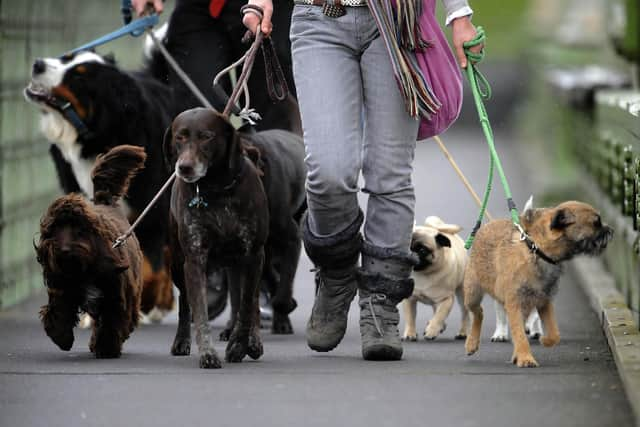Fewer dog bite wounds treated in Greater Preston, new figures show
and live on Freeview channel 276
The Dogs Trust said trusting basic dog training is “not enough” in preventing pets from biting as the number of dog bite wounds treated in hospitals across England continues to rise.
However, NHS data shows there were about 70 episodes of patients being treated in hospital for dog bites in the former NHS Greater Preston CCG in the year to March 2023 – down from 80 the year before.
Advertisement
Hide AdAdvertisement
Hide AdThese figures are rounded and are not a count of people, as one person could be seen more than once within the year.


Nationally, there has been a rising number of episodes of people in hospital because of a dog bite with a provisional 9,300 recorded in 2022-23.
It is an increase from 8,800 the year prior and the highest number since at least 2011.
Owen Sharp, chief executive at Dogs Trust, said most dogs live harmoniously within families, but most bites happen within the home.
Advertisement
Hide AdAdvertisement
Hide Ad“Basic training of dogs is not enough; close supervision of children and dogs while interacting is the most effective way of preventing incidents,” he said.
“Unfortunately, when the worst does happen, not only are children injured, but it can also have a devastating impact on the family pet, with some dogs handed over to organisations like ours for rehoming, or in some cases, euthanised.”
Separate data shows 1,700 children were admitted to hospital in the last year because of a dog bite incident.
Dr Samantha Gaines, head of companion animals at the RSPCA, said: “We don’t ever expect our own dogs to bite, but all dogs can – it doesn’t matter what size or breed they are.
Advertisement
Hide AdAdvertisement
Hide Ad“Parents and guardians naturally love the idea of their child having a close bond with the family dog, and in many cases, they do, but having a close bond doesn’t mean that the dog will never bite.”
She added a small amount of research by pet owners on dog body language would prevent countless accidents.
Katrina Phillips, chief executive of the Child Accident Prevention Trust, added summer holidays often lead to an increase in dog bites as children and dogs spend more time together.
“Give your dog a safe space they can go to when they need time out from children’s exuberance,” she said.
“Even a much-loved family pet can bite if they feel they have no other option.”